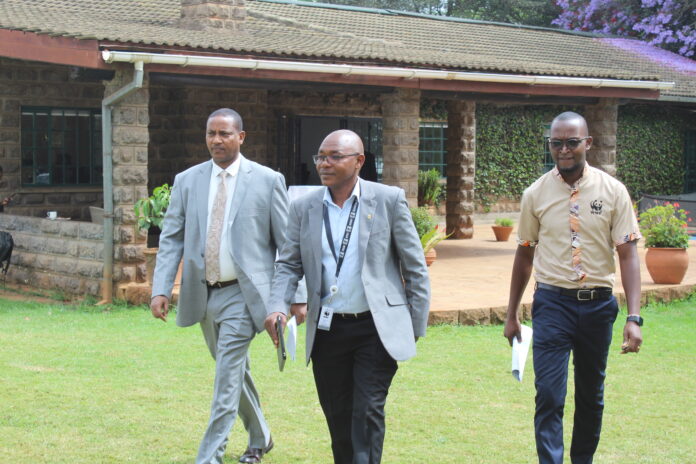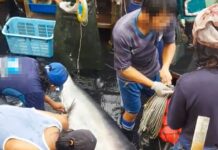
By Liz Anyango
Nairobi, Kenya: The National Environment Management Authority (NEMA) has given producers and importers of goods a reprieve on compliance with the mandatory extended producer responsibility provisions in the Sustainable Waste Management Act, 2022.
The deadline for manufacturers and importers to demonstrate compliance with the new law expired on Monday, October 30th, but the environmental regulator has granted stakeholders more time to comply as it develops a compliance plan and public awareness campaign.
“We shall not start enforcement right away. We will start a compliance plan and awareness creation to ensure citizens are aware of this regulation because citizen responsibility is key to the management of waste” said Dr. Mamo B. Mamo, Director-General, of NEMA.
Dr. Mamo was speaking during a forum on Extended Producer Responsibility as a Catalyst for Transition to Circular Economy in Kenya held in Nairobi which brought together the private sector, academia, and government to foster a deeper understanding of the EPR requirements and compliance.
Dr. Mamo spoke at a forum in Nairobi on Extended Producer Responsibility as a Catalyst for the Transition to a Circular Economy in Kenya. The forum brought together the private sector, academia, and government to foster a deeper understanding of EPR requirements and compliance.
The Kenya Association of Manufacturers (KAM) urged producers to adhere to provisions of Section 13 which requires companies to exhibit proof of compliance to the Sustainable Waste Management Act.
“As a company, you cannot say these regulations don’t apply to me because of a lacuna which is a term used to describe a gap in law. As of now, there is no lacuna. There is more clarification on extended producer responsibility,” said Miriam Bomett, Deputy Head of Policy, Research and Advocacy – KAM.

The Kenya Extended Producer Responsibility Organization (KEPRO) on packaging for non-hazardous products urged producers to look beyond compliance to aspects of environmental, social, and corporate governance.
“We need to appreciate that extended producer responsibility is here to stay. That should be the motivation,” said James Odongo, Chief Administrative Officer, KEPRO.
KEPRO is one of four voluntary schemes formed by industry players to comply with the new legal dispensation. The other three are the Packaging Producer Responsibility Organization (PAKPRO), E-Waste Producer Responsibility Organization (E-PROK), and KEHARPO which deals with hazardous material.
“We are witnessing signals that seek to govern and enhance responsible production and disposal in our economic environment, but we need to raise our ambitions to match the extent of the problem. The four PROs are only dealing with non-hazardous packaging. There are other categories of materials that urgently need the private sector to coalesce around and create effective PROs, especially on end-of-life automobiles and non-packaging waste,” said Jackson Kiplagat, Head of Conservation, WWF-Kenya.
Safaricom, which is the largest telecommunications provider in Kenya, said that it had ridden itself of plastics in its current sustainability policy through the adoption of an e-waste take-back system.
“We have set up e-waste bins at retail shops to encourage electronic waste to be collected for free disposal,” said Owen Ombima – Senior Officer, of Sustainable Business and Social Impact, Safaricom PLC.
The forum was organized by WWF-Kenya to promote circular economy practices and effective waste management through the implementation of Extended Producer Responsibility requirements stipulated in the Sustainable Waste Management Act.
Other important stakeholders who participated in the forum included the Kenya Private Sector Alliance, Bowmans (Kenya), Michelin, East African Breweries PLC, and cBrain.













